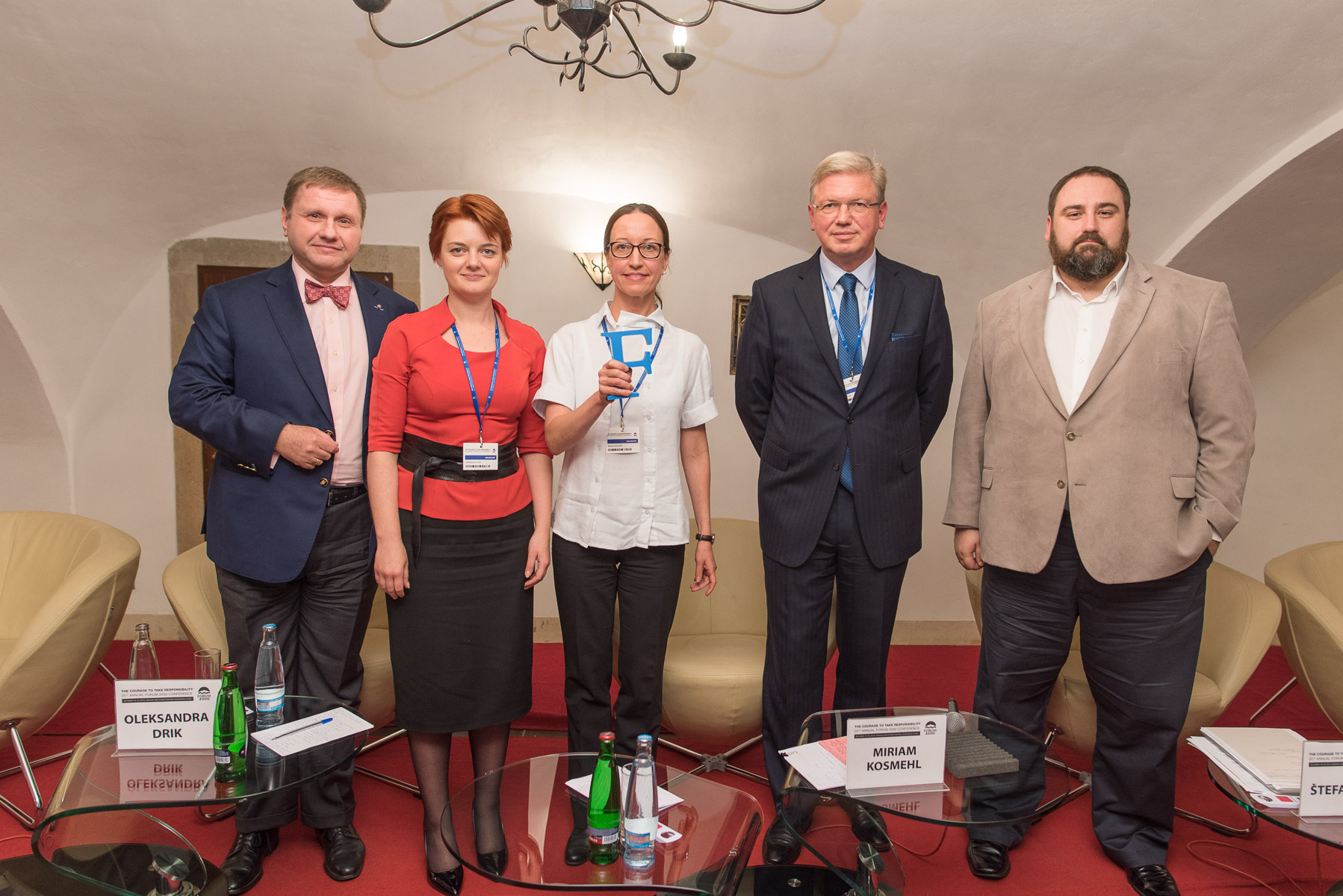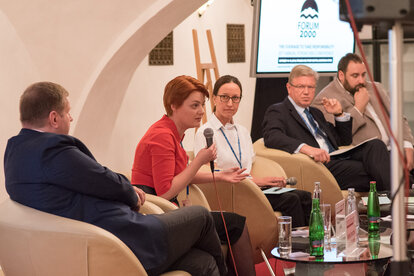The 20th Annual Democracy Forum 2000 in Prague

On Sunday, October 16, the 20th annual democracy Forum 2000 began in Prague - a conference of global scale founded by Vaclav Havel. Ukraine was one of the major topics discussed right from the start with Oleksandra Drik, Head of the Board of the NGO "Civic Lustration Committee", representing her country on the Opening Panel "A Crisis of Democratic Leadership” with Ralf Fücks, President of Heinrich-Böll-Foundation, Carl Gershman, President of the National Endowment for Democracy, and Edward Lucas of the Economist. Iveta Radičová, the former Prime Minister of Slovakia, moderated the debate.
A panel specifically on Ukraine later on the first day of Forum2000 explored the role of Ukraine's "new generation".

Here, the panelists were Oleksandra Drik and Yevhen Hlibovytsky, journalist, analyst, intellectual, lecturer and strategist from "pro.mova"; Štefan Füle, former EU Commissioner for Enlargement and European Neighborhood Policy, and Russian journalist and political commentator Konstantin von Eggert of "Dozhd TV". Miriam Kosmehl, Friedrich Naumann Foundation's Ukraine Project Director, moderated the discussion.
In a nutshell, the panelists presented the following theses: There is no doubt that the new Ukrainian generation is willing to assume responsibility.
However, it is less a "new" generation and more a "now" generation. Reform-orientation (or sabotage of reforms) does not depend on age and people from different backgrounds remain actively involved in pressing for reforms and monitoring.
The role of civil society is particularly challenging. Real reforms do take times. Nevertheless, without pressure the current Ukrainian leadership more often than not fails to take the right action.
This is why the real governing coalition in Ukraine for the time-being is CS+EU+US (civil society plus the EU plus the US) - together with the Cabinet of Ministers as an unwilling partner under pressure.
Nevertheless, civil society should not be enthroned as a form of governance. CS works on changing the state and its institutions.
Citizens have to regain trust which is crucial social capital.
Western partners of Ukraine must stay engaged - and help persistently supporting Ukraine in its modernisation and change.
Ukraine does matter as a strategic partner to the European Union.
The Russian society differs from the Ukrainian society in three factors: - the imperial tradition; - the very specific political environment plus fear and resignation; - an economy that is steered overwhelmingly by the State of which large parts of society depend.
Here as well, no clean line can be drawn between young and older citizens.